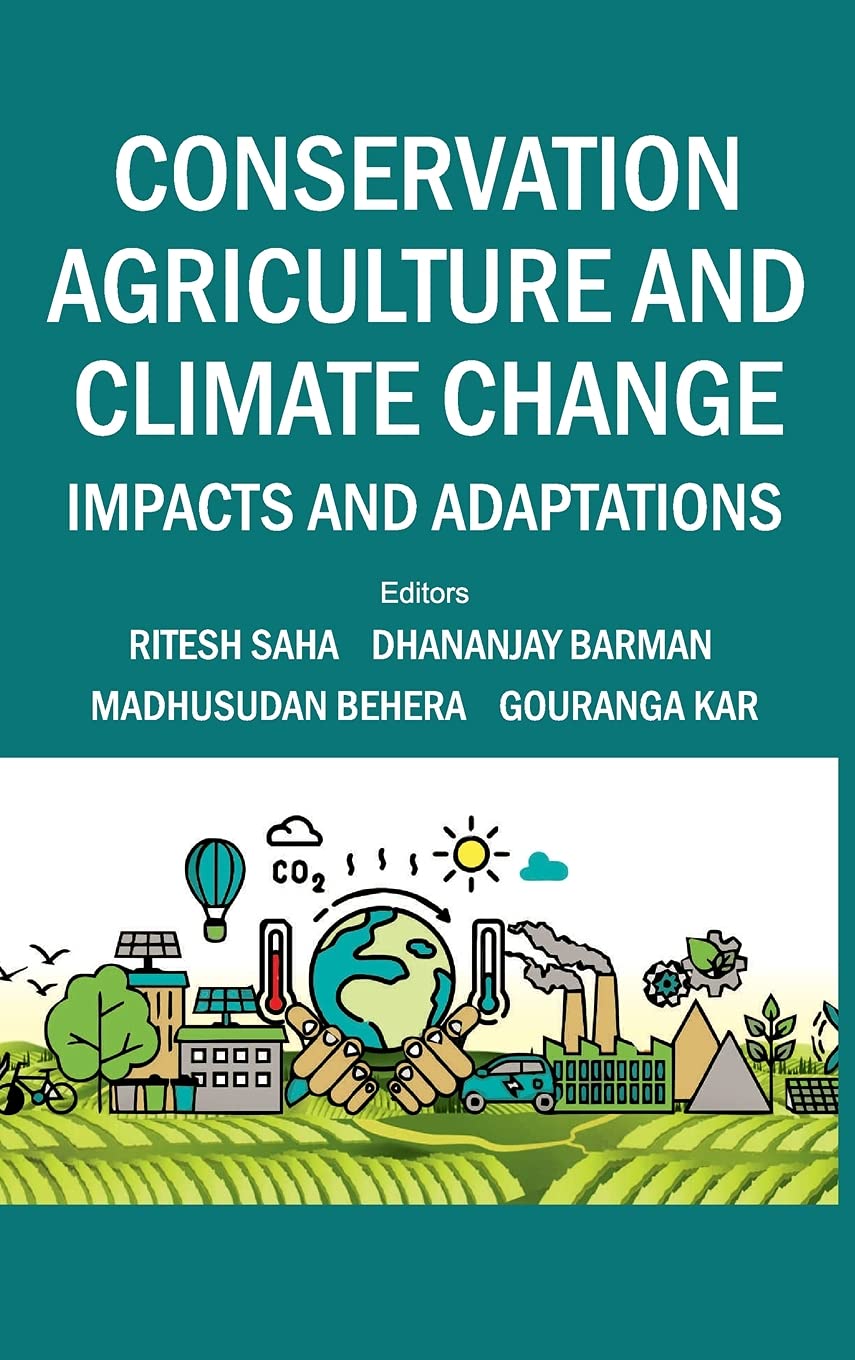Conservation Agriculture and Climate Change
Conservation Agriculture and Climate Change
Couldn't load pickup availability
Conventional tillage and burning crop residues has degraded the soil resource base and intensified soil degradation with concomitant decrease in crop production capacity. The emerging issue of global warming coupled with greenhouse gases emissions has further aggravated the scenario. Conservation agriculture (CA) helps in reducing many negative effects of conventional agriculture such as soil erosion, soil organic matter (SOM) decline, water loss, soil physical degradation, and fuel use. CA helps to improve biodiversity in the natural and agro-ecosystems. Complemented by other good agricultural practices (GAPs) including the use of quality seeds, integrated pest, nutrient and water management etc., CA provides a base for sustainable intensification of the agricultural production system. Moreover, the yield levels in CA systems are comparable and even higher than traditional intensive tillage systems with substantially less production costs. The conservation agriculture (CA) practiced over an estimated 100 M ha area worldwide and across a variety of climatic, soil and geographic zones, has proved to be energy and input efficient, besides addressing the emerging environment and soil health problems.
Share

